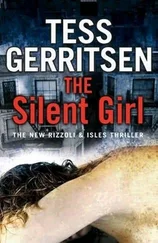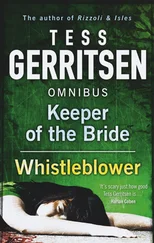Maybe the matchstick fell by itself. Maybe I can still get my suitcase. My money.
Risking a glance over the wall, she stared up the alley. No one.
Do I chance it? Do I dare?
She slipped into the alley again. Made her way down a series of narrow streets until she reached the outskirts of the piazzetta. But she did not step into the open; instead she edged toward the corner of a building and peered up at the window of her own flat. The wooden shutters were open, as she’d left them. Through the gathering twilight, she saw something move in that window. A silhouette, just for a second, framed by the shutters.
She jerked back behind the building. Shit. Shit.
She unzipped her backpack and rifled through her wallet. Forty-eight Euros. Enough for a few meals and a bus ticket. Maybe enough for a cab ride to San Gimignano, but not much more. She had an ATM card, but she dared not use it except in large cities, where she could easily slip straight into a crowd. The last time she’d used it was in Florence, on a Saturday night, when the streets were thronged.
Not here, she thought. Not in Siena.
She left the piazzetta and headed deep into the back alleys of the Fontebranda. Here was the neighborhood she knew best; here she could elude anyone. She found her way to a tiny coffee bar that she’d discovered weeks ago, frequented only by locals. Inside, it was gloomy as a cave and thick with cigarette smoke. She settled at a corner table, ordered a cheese and tomato sandwich and an espresso. Then, as the evening passed, another espresso. And another. Tonight, she would not be sleeping. She could walk to Florence. It was only-what, twenty, twenty-five miles? She’d slept in the fields before. She’d stolen peaches, plucked grapes in the dark. She could do it again.
She devoured her sandwich, swept every last crumb into her mouth. No telling when she’d eat again. By the time she stepped out of the coffee bar, night had fallen and she could move through dark streets with little fear of being recognized. There was one other option. It was risky, but it would save her from a twenty-five-mile hike.
And Giorgio would do it for her. He would drive her to Florence.
She walked and walked, giving the busy Campo a wide berth, sticking to the side streets. By the time she reached Giorgio’s residence, her calves were aching, her feet sore from the uneven cobblestones. She paused in the cover of darkness, gazing at the window. Giorgio’s wife had died years ago, and father and son now shared the flat. The lights were on inside, but she saw no movement on the first floor.
She was not foolhardy enough to knock at the front door. Instead she circled around to the small garden in back, let herself in through the gate, and brushed past fragrant thyme and lavender to knock at the kitchen door.
No one answered.
She strained to hear if the TV was on, thinking that perhaps they couldn’t hear her, but she heard only the muted sounds of traffic from the street.
She tried the knob; the door swung open.
One look was all it took. One glimpse of blood, of splayed arms and ruined faces. Of Giorgio and Paolo, tangled together in a last embrace.
She backed away, hand clapped to her mouth, her vision blurred in a wash of tears. My fault. This is all my fault. They were killed because of me.
Stumbling backward through lavender, she collided with the wooden gate. The jolt snapped her back to her senses.
Go. Run.
She scrambled out of the garden, not bothering to latch the gate behind her, and fled down the street, her sandals slapping against the cobblestones.
She did not slow her pace until she reached the outskirts of Siena.
“Are we absolutely certain there is a second victim?” asked Lieutenant Marquette. “We don’t have DNA confirmation yet.”
“But we do have two different blood types,” said Jane. “The amputated hand belonged to someone with O positive blood. Lori-Ann Tucker is A positive. So Dr. Isles was absolutely correct.”
There was a long silence in the conference room.
Dr. Zucker said softly, “This is getting very interesting.”
Jane looked across the table at him. Forensic psychologist Dr. Lawrence Zucker’s intent stare had always made her uncomfortable. He looked at her now as though she were the sole focus of his curiosity, and she could almost feel his gaze tunneling into her brain. They had worked together during the Surgeon investigation two and a half years ago, and Zucker knew just how haunted she’d been in the aftermath. He knew about her nightmares, her panic attacks. He’d seen the way she used to rub incessantly at the scars on her palms, as though to massage away the memories. Since then, the nightmares of Warren Hoyt had faded. But when Zucker looked at her this way, she felt exposed, because he knew just how vulnerable she’d once been. And she resented him for it.
She broke off her gaze and focused instead on the other two detectives, Barry Frost and Eve Kassovitz. Adding Kassovitz to the team had been a mistake. The woman’s very public barfing into the snowbank was now common knowledge in the unit, and Jane could have predicted the practical jokes that followed. The day after Christmas, a giant plastic bucket, labeled with Kassovitz’s name, had mysteriously appeared on the unit’s reception desk. The woman should have just laughed it off, or maybe gotten pissed about it. Instead she looked as beaten down as a clubbed seal, and she sat slumped in her chair, too demoralized to say much. No way was Kassovitz going to survive this boys’ club if she didn’t learn to punch back.
“So we have a killer who not only dismembers his victims,” said Zucker, “but he also transfers body parts between his crime scenes. Do you have a photo of the hand?”
“We have lots of photos,” said Jane. She passed the autopsy file to Zucker. “By its appearance, we’re pretty sure the hand is a female’s.”
The images were gruesome enough to turn anyone’s stomach, but Zucker’s face betrayed no shock, no disgust, as he flipped through them. Only keen curiosity. Or was that eagerness she saw in his eyes? Did he enjoy the view of atrocities visited on a young woman’s body?
He paused over the photo of the hand. “No nail polish, but the fingers definitely look manicured. Yes, I agree it looks like a woman’s.” He glanced at Jane, his pale eyes peering at her over wire-rim glasses. “What do you have back on these fingerprints?”
“The owner of that hand has no criminal record. No military service. Nothing in NCIC.”
“She’s not in any database?”
“Not her fingerprints, anyway.”
“And this hand isn’t medical waste? A hospital amputation, maybe?”
Frost said, “I checked with every medical center in the greater Boston area. In the past two weeks, there’ve been two hand amps, one at Mass Gen, another at Pilgrim Hospital. Both were the result of trauma. The first was a chain saw accident. The second was a dog attack. In both cases, the hands were so badly mangled they couldn’t be reattached. And the first case was a man’s.”
“This hand was not dug up out of hospital waste,” said Jane. “And it wasn’t mangled. It was sliced off with a very sharp, serrated blade. Also, it wasn’t done with any particular surgical skill. The tip of the radius was sheared off, with no apparent attempt at controlling blood loss. No tied-off vessels, no dissection of skin layers. Just a clean cut.”
“Do we have any missing persons it might match?”
“Not in Massachusetts,” said Frost. “We’re widening the net. Any white female. She can’t have gone missing too long ago, since the hand looks pretty fresh.”
Читать дальше












